
Psychological First Aid for Schools (PFA-S) Field Operations Guide (in Serbian)
Provides guidance on responding to disaster, violence, or terrorism events using the Psychological First Aid intervention.
The following resources on child trauma were developed by the NCTSN. To find a specific topic or resource, enter keywords in the search box, or filter by resource type, trauma type, language, or audience.

Provides guidance on responding to disaster, violence, or terrorism events using the Psychological First Aid intervention.
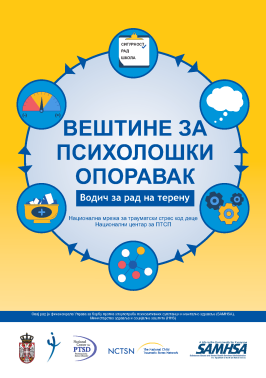
Gives guidance on responding to disaster, violence, or terrorism events using the Skills for Psychological Recovery intervention. This approach helps to assist children, adolescents, adults, and families in the aftermath of disaster and terrorism.
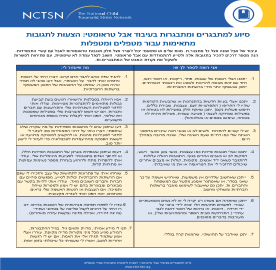
Describes how teens may feel when struggling with the death of someone close and offers tips on what caregivers can do to help. Translated in 2024.
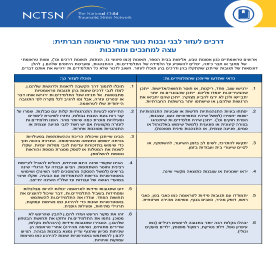
Lists common reactions educators might see in the students with whom they work and suggestions on how they may help after community trauma.
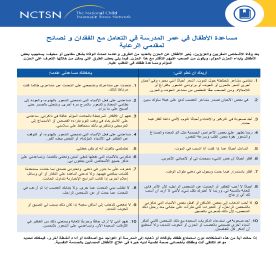
Describes how school-age children may feel when struggling with the death of someone close and offers tips on what caregivers can do to help. Translated in 2023.
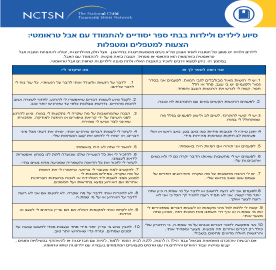
Describes how school-age children may feel when struggling with the death of someone close and offers tips on what caregivers can do to help. Translated in 2023.
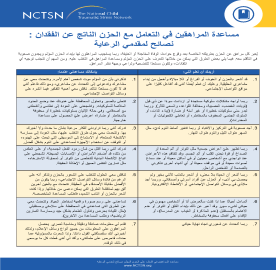
Describes how teens may feel when struggling with the death of someone close and offers tips on what caregivers can do to help. Translated in 2023.
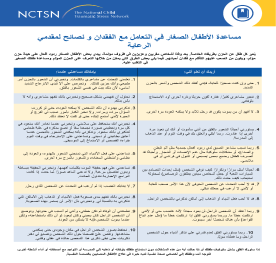
Outlines the feelings of young children struggling with the death of someone meaningful and offers suggestions on what caregivers can do to help. Translated in 2023.

Outlines the feelings of young children struggling with the death of someone meaningful and offers suggestions on what caregivers can do to help. Translated in 2023.
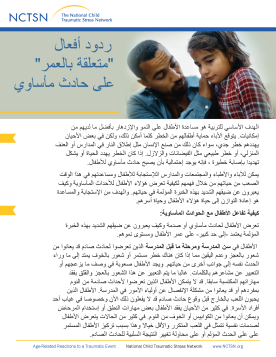
Describes how young children, school-age children, and adolescents react to traumatic events and offers suggestions on how parents and caregivers can help and support them. Translated in 2023.
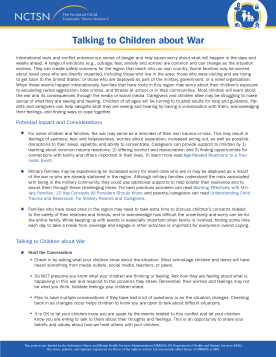
Offers information for caregivers on how to talk to children about war. This fact sheet includes the potential impact and considerations when talking to children about war, how to start the conversation, understanding media coverage, and how to foster resilience. Updated 2023.

Offers information about the recent work several Network centers working with Tribal communities are engaged in and honoring their work to commemorate Indigenous Peoples Day.